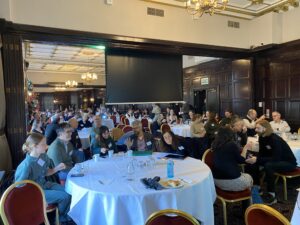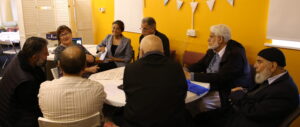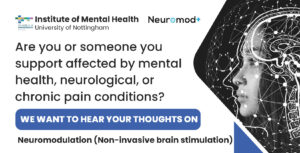NEUROMOD+
Representing UK research, industry, clinical and patient communities, working together to address the challenge of minimally invasive treatments for brain disorders
The EPSRC & MRC funded NEUROMOD+ Network brings together multidisciplinary stakeholder groups to support the co-creation of novel neuromodulation therapies. Find out more about us and our team.
Breaking barriers: making brain research more inclusive
Hear from University of Sheffield researcher Dr Mahnaz Arvaneh about the importance of diversity in brain research and the outcomes from her Neuromod+ funded work on fostering acceptance and inclusivity of non-invasive neurotechnology in ethnic minority communities.
Recent news

events
Advancing UK Neurotechnology: Reflections on Our Joint Symposium
The closeNIT and Neuromod+ networks have been working closely to foster collaboration across the neuroscience and neurotechnology communities, including co-hosting
19 January 2026

news
Making Brain Research More Inclusive
A new video, from Neuromod+ awardee Mahnaz Arvaneh and team, highlights the importance of diversity in in brain research. The
22 October 2025

news
Have your say on neuromodulation!
Researchers at the Nottingham Institute of Mental Health have launched a survey to understand what people think about “neuromodulation” (non-invasive
25 June 2025
Upcoming events and activities
0 events found.
Events
Notice
There are no upcoming events.
Notice
There are no upcoming events.